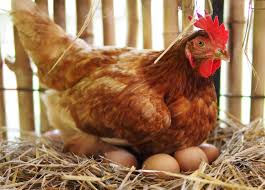Eggs 101
- rusticrootsheritag
- Feb 8, 2025
- 3 min read

Eggs 101: Everything You Need to Know About Your Farm-Fresh Eggs
If you’re new to keeping chickens or just curious about farm-fresh eggs, you might have some common misconceptions. Let’s break down some egg basics so you can confidently enjoy these backyard treasures.
Do You Need a Rooster for Eggs?
One of the biggest myths about chickens is that you need a rooster for hens to lay eggs. This is false. Hens will lay eggs with or without a rooster. However, if a rooster is present, the eggs will be fertilized. But fertilization does not affect the taste, texture, or nutritional value of the eggs unless they are incubated and allowed to develop.
Are All Eggs Fertile?
All eggs are fertile. A rooster is needed to get fertilized eggs that you can hatch. However, without incubation (either by a broody hen or an incubator), there is no chick development. If you collect eggs daily and store them properly, fertilization doesn’t change anything about how you cook or consume them.

Should You Wash Your Eggs? Understanding the Bloom
Freshly laid eggs have a natural protective coating called the bloom (or cuticle). This invisible layer seals the pores of the eggshell, keeping out bacteria and moisture while preserving freshness. Washing an egg removes the bloom, which makes the egg more susceptible to contamination and shortens its shelf life.
If you plan to leave eggs on the counter, do not wash them until just before use. Unwashed eggs can last at room temperature for up to four weeks, while refrigerated eggs (washed or unwashed) can stay fresh for three months or more.
What Are Eggs Made Of?
Eggs are nutritional powerhouses made up of several components:
Shell – Primarily composed of calcium carbonate, the shell protects the contents and provides minerals for developing chicks if fertilized.
Membranes – Inside the shell, thin membranes help keep bacteria out.
Egg White (Albumen) – Contains protein and water, providing structure for cooking and nourishment for an embryo if incubated.
Yolk – The most nutrient-dense part, packed with fats, vitamins, and minerals essential for growth and energy.
Chalazae – Twisted strands that keep the yolk centered in the egg.
Why Is Calcium Important for Eggs?
Since the shell is primarily calcium carbonate, hens need plenty of calcium to lay strong, healthy eggs. If a hen’s diet lacks calcium, she may lay soft-shelled eggs or start pulling calcium from her own bones, which can lead to health problems.
To ensure strong shells, provide your hens with calcium-rich supplements, such as:
Crushed oyster shells
Ground eggshells (recycled from their own eggs)
High-quality layer feed with added calcium
Eggs are one of nature’s most perfect foods. They are packed with high-quality protein, essential vitamins, and healthy fats, making them a staple in any diet. Not only are they versatile in cooking, but farm-fresh eggs offer a depth of flavor that store-bought eggs simply can't match. The vibrant yolks, firm whites, and overall quality are proof of how much a hen's diet and care impact the final product. Plus, raising your own chickens means you always have fresh eggs on hand—nothing beats that!
Raising chickens and enjoying fresh eggs is incredibly rewarding, but understanding egg science helps you make the most of your flock’s bounty. By knowing the role of roosters, the importance of the bloom, and the nutritional makeup of eggs, you can confidently care for your hens and enjoy farm-fresh eggs in the best way possible!
What’s your favorite way to use fresh eggs? Let us know in the comments!



Comments